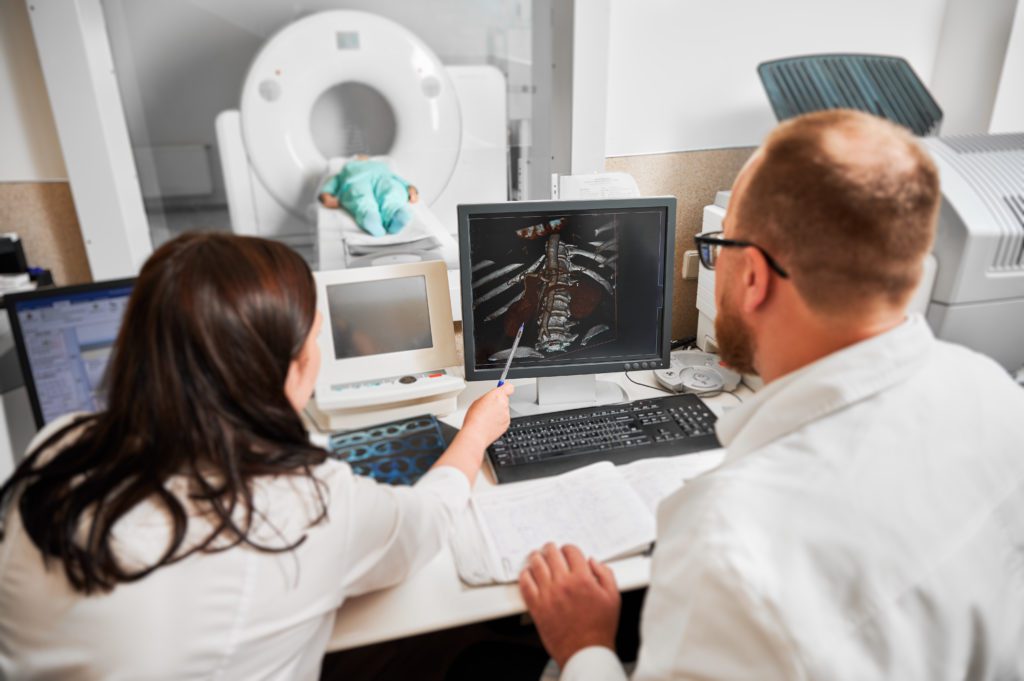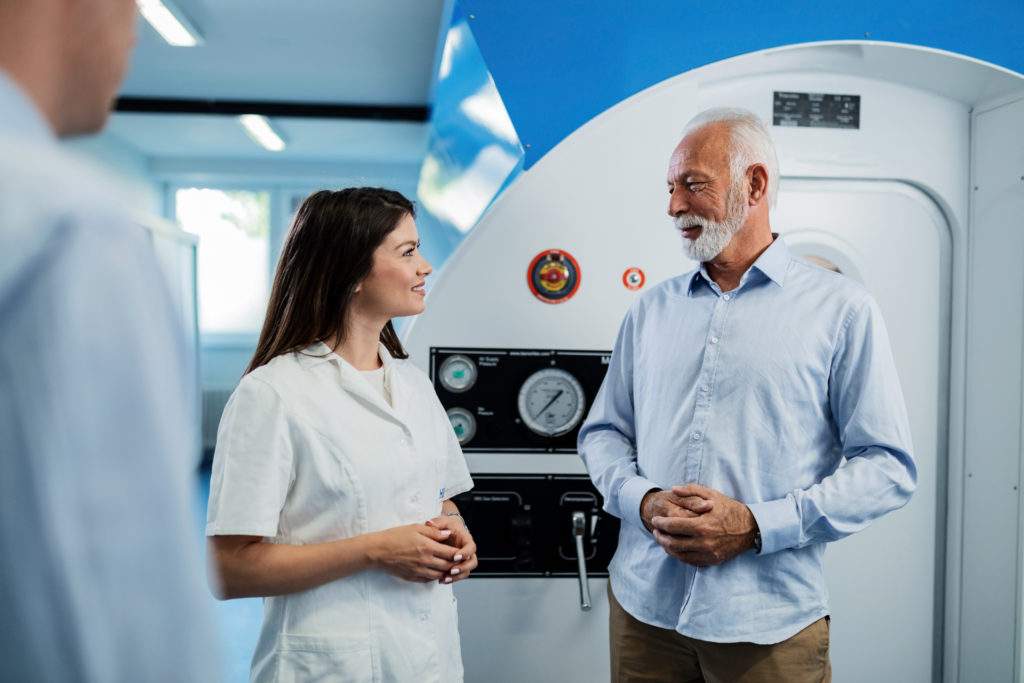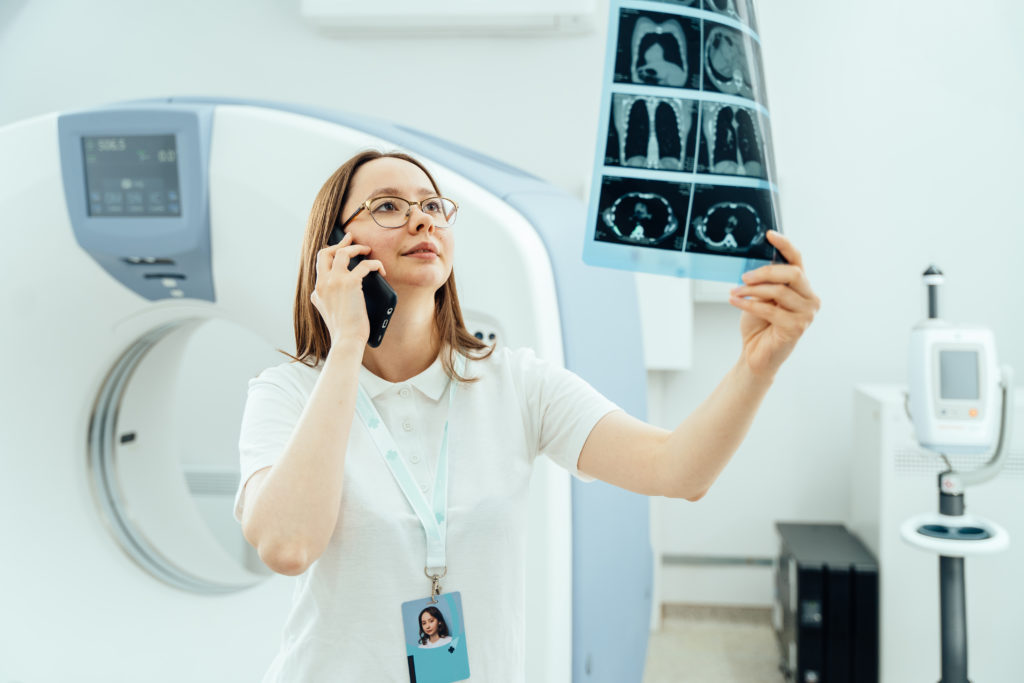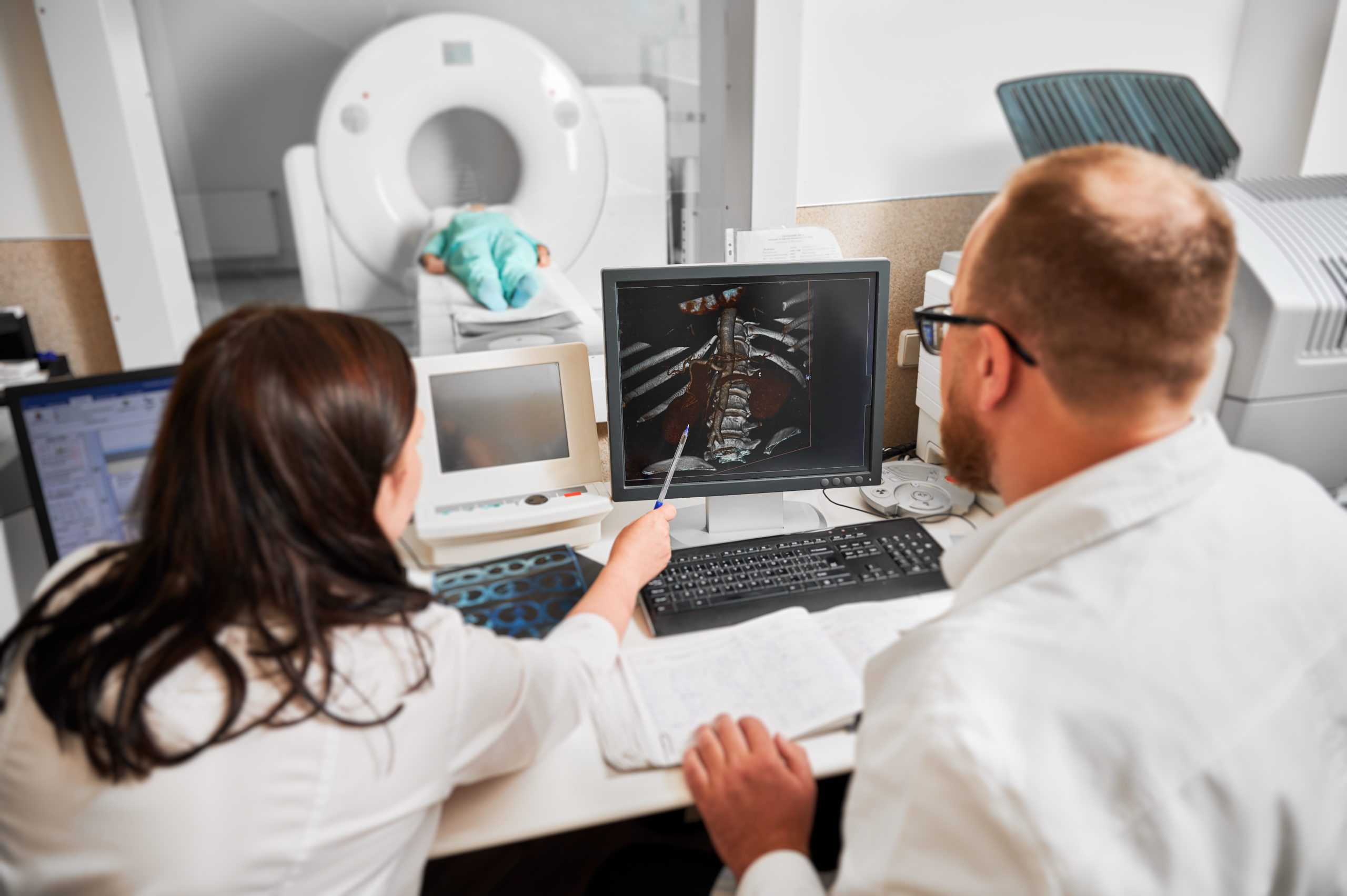Whole-body scans or full-body scans are one of the revolutionary technological advancements in today’s modern medicine. It is an examination done to diagnose or detect a patient’s illness. If you’re curious about the pros and cons of whole-body scans, then this blog is for you.
This article outlines the main whole-body scans advantages and disadvantages to help you decide if they are right for you. We also include some tips on how to prepare for your diagnostic imaging appointments.
Understanding Whole Body Scans

Magnetic resonance imaging (MRI), computed tomography (CT scans), and DEXA scans collectively contribute to the technology behind whole-body scans, which serve as an invaluable resource for detecting possible cancerous growths and evaluating general health.
These full-body examinations are instrumental in identifying injuries, and internal bleeding, and tracking diseases such as cancer. The comprehensive nature of these whole-body scans renders them crucial tools within the field of preventive medicine.
While CT scans offer a quick method for creating detailed images of internal structures using X-rays, they come with minimal radiation exposure to patients. Full-body CT is recognized for its speed in producing fine details internally.
On the other hand, MRI uses powerful magnetic fields alongside radio waves to yield highly detailed images without subjecting individuals to any form of ionizing radiation through its magnetic resonance technique.
Meanwhile, DEXA scans apply low-dose X-ray beams specifically targeted at measuring bone density along with overall body composition assessments. Intricate these modalities may be individually or together during full-body scanning procedures. There can be limitations when it comes to thoroughly examining specific bodily regions that might require focused attention.
Advantages of Whole Body Scans

Before undergoing a whole body scan, it’s important to appreciate the numerous benefits they provide. These scans have become increasingly sought after for their ability to detect serious health issues at an early stage, which can lead to prompt and potentially more effective treatments.
As non-invasive and expedient procedures, whole-body scans are a preferable option for those looking for a swift evaluation of their health status. In the field of preventive medicine, these comprehensive body scans are invaluable as they deliver extensive insights into one’s overall well-being.
Subsequently: Whole body scans present several notable advantages.
- The capacity for early recognition of critical conditions that facilitates immediate medical action
- Their non-invasive nature combined with quick execution makes them an ideal choice for assessing health conveniently
- They play a pivotal role in preventive healthcare by providing thorough evaluations
Exploring Reveals three principal merits: the proactive discovery of potential illnesses, all-encompassing assessments about bodily health, and contributing significantly towards mental tranquility regarding personal well-being.
Early Detection of Diseases
One of the significant advantages of full body scans is their capacity for early identification of diseases. By conducting these regular screenings, it’s possible to catch serious conditions such as lung cancer and heart disease in their initial stages, which can lead to improved chances of survival.
Full-body MRI scans are particularly adept at picking up on the earliest indications of both cancerous growths and cardiovascular complications, affording patients a vital opportunity to commence treatment sooner.
Full-body MRI scans play an important role even for individuals who show no signs or symptoms. Those in good health might still benefit from full-body screenings.
Medical studies indicate that numerous asymptomatic people have discovered previously unrecognized health issues through these comprehensive examinations. This approach is synonymous with the ethos behind preventive medicine: prioritizing early detection and taking action promptly leads to more favorable outcomes concerning one’s overall well-being.
Comprehensive Health Assessment
DEXA scans provide a comprehensive analysis of health indicators, facilitating an in-depth assessment of one’s overall well-being. They precisely measure components of body composition such as the percentage of total body fat, indices relating to fat mass, volumes of visceral adipose tissue, quantities of skeletal muscle mass, rates for resting metabolism, and densities within bones.
Gaining insight into these metrics empowers individuals to better control their health by proactively responding to risk factors that could potentially lead to severe concerns if left unattended.
Peace of Mind
The reassurance gained from understanding one’s health status via body scans can significantly reduce worries over unrecognized health conditions. The value of this peace of mind is immeasurable for numerous people, as it diminishes the stress associated with possible undiagnosed ailments and fosters an attitude toward proactive management of their health.
Among certain groups, undergoing whole-body scans has become a new status symbol that signals a dedication to maintaining good health.
Disadvantages of Whole Body Scans
Whole-body scans, while beneficial in many ways, come with significant disadvantages. One key issue is the possibility of false positives and negatives that can cause undue anxiety and trigger additional unnecessary tests. Exposure to radiation from CT and PET body scans adds a risk factor for cancer development—this is particularly concerning for people who are otherwise healthy.
The expense associated with whole body scans poses an economic challenge since insurance usually doesn’t cover these costs. We’ll delve deeper into these drawbacks to understand their impact better.
False Positives and Negatives
Full body scans can result in the issue of false positives, where a scan suggests there is an issue when there isn’t one. This may lead to unnecessary additional tests and expenses, as well as cause unwarranted worry and stress, potentially resulting in more invasive measures due to inaccurate results.
At the same time, full body scans might produce false negatives by overlooking serious health problems. Individuals must be aware of both possibilities—false positives and negatives—to make educated decisions regarding whole-body scans.
For instance, a false positive could incorrectly signal that there’s a tumor present in the body, leading to expensive follow-up testing or procedures. Conversely, if a false negative occurs during scanning, it may overlook cancer that is developing within the body, which could delay critical treatment and negatively impact recovery prospects.
These potential errors underscore why one must thoughtfully consider—and seek advice from medical professionals—before proceeding with any form of whole-body imaging procedure.
Radiation Exposure
Exposure to radiation, particularly from CT and PET body scans, is a significant downside of whole-body scanning procedures. Patients are subjected to substantial levels of radiation during these scans, which can increase the likelihood of developing cancer. The risks associated with such exposure are especially worrying for healthy people who undergo these body scans without any definite medical reasons.
It is essential to carefully balance the potential risks against the benefits when considering routine screening that involves radiation exposure through full-body scanning processes.
High Costs
The cost of full body scans can be substantial, as they often are not included in health insurance plans since many are elective. Prices for these body scans range from $500 to a few thousand dollars, depending on the specific type and geographic location of the service provided. For instance, an Ezra full-body MRI scan is priced at $1,350. This steep price tag paired with a lack of coverage under standard health policies might discourage individuals from undergoing such beneficial whole-body scans.
Compounding the issue is that false positives from initial scans may lead to Testing which adds more expenses. Consequently, patients could incur considerable healthcare bills due to unnecessary supplementary procedures following their primary scan. It’s important to consider this financial component when evaluating the risks versus rewards associated with obtaining a comprehensive whole-body scan for health reasons.
How Physicians Group, LLC provides imaging services

At Physicians Group, LLC, an extensive array of imaging services is provided through cutting-edge technology to conduct thorough health evaluations. Their offerings encompass standard X-rays, magnetic resonance imaging (MRI), digital motion X-rays, and DynaROMTM techniques designed to obtain precise images that reveal the condition of bones, joints, and soft tissues. These diagnostic tools are crucial for identifying a variety of medical issues such as bone fractures or dislocations. To injuries affecting soft tissues and problems with the spinal cord. The employment of modern MRI machines delivers superior quality images which contribute significantly towards pinpointing diagnoses and formulating effective treatment strategies.
Physicians Group features specialized imaging options like DynaROMTM alongside its conventional services. This innovative method provides insights into spine and muscle functionality by gauging range-of-motion metrics with digital sensors during easy-to-perform exercise routines. This comprehensive examination technique facilitates a nuanced analysis regarding musculoskeletal well-being—an invaluable resource for those undergoing rehabilitation post-injury or individuals who suffer from enduring pain conditions.
Imaging for Car Accident Victims
At Physicians Group, LLC, patients who have been involved in automotive collisions receive extensive imaging evaluations to uncover injuries that might not be evident at first glance. The employment of various diagnostic tools such as MRI machines and X-rays guarantees the identification and appropriate treatment of even the most minor injuries.
These meticulous methods enable the creation of detailed images that facilitate an accurate diagnosis and the development of a successful treatment strategy. Through MRI scans revealing soft tissue damage or X-rays pinpointing bone fractures, these sophisticated scanning services provided by Physicians Group, LLC are vital in assisting individuals injured in car accidents on their journey to recuperation.
Other Available Services
Physicians Group, LLC extends its healthcare offerings beyond imaging services to encompass various other treatments. The provision of chiropractic care alongside remedies for joint, neck, and back discomfort reflects their commitment to a holistic strategy that delivers patient-specific comprehensive health solutions.
The organization addresses an extensive spectrum of health issues by offering diversified services designed for both chronic pain management and acute injury rehabilitation. As such, Physicians Group, LLC is recognized as a single hub for all-encompassing healthcare needs.
Preparing for Your Whole Body Scan
To achieve the best possible outcomes and a seamless scanning experience, adequate preparation is essential. Each type of whole-body scan necessitates distinct preparatory measures to attain the highest accuracy in results.
When preparing for an MRI scan, patients must consume only clear liquids and remove any metallic items or jewelry beforehand. Sometimes, a mild sedative might be administered to ensure relaxation during the procedure. Patients must notify the technologist about any medical devices present within their bodies to avoid complications with the MRI’s magnetic field.
In our examination of various scans including MRI, CT, and DEXA scans, we will discuss each one’s specific preparatory steps needed before undergoing these procedures.
MRI Preparation
Preparing for an MRI scan encompasses several critical steps to guarantee both the safety of the procedure and the precision of its results.
- Patients must detach all metallic items, such as jewelry and any makeup containing metal, to prevent disruptions in image quality.
- Patients are recommended to don hospital-provided attire like gowns or scrubs while undergoing their scan for enhanced comfort and security.
- For those with claustrophobia, requesting a gentle sedative may help ease feelings of anxiety throughout their MRI.
- Should there be a need for contrast material during the process, it’s important to conduct tests checking kidney function ahead of time to determine potential risks.
Adhering strictly to these preparatory measures can significantly contribute toward a seamless and efficacious MRI session.
It’s paramount that individuals notify medical personnel about any implanted body devices they have before an MRI since certain devices may be adversely affected by the magnetic field emitted by this equipment. Doing so helps maintain patient safety and avoids imaging complications.
The scanning endeavor itself usually unfolds over approximately one hour where staying motionless is imperative to obtain high-quality diagnostic images from within your body.
CT Scan Preparation
Primarily, preparing for a CT scan includes fasting and maintaining good hydration. For precise imaging outcomes, individuals are often advised to refrain from consuming any food or liquid several hours before the scan. If contrast dye is part of the procedure, being properly hydrated is crucial as it enhances image clarity while also diminishing potential risks.
Executing these measures meticulously is vital in securing high-quality and exact diagnostic images from a CT scan.
DEXA Scan Preparation
It is vital to maintain hydration and refrain from taking calcium supplements for 24 hours before a DEXA scan. Notifying the physician of any recent imaging studies involving contrast agents is imperative.
Opting for loose-fitting attire can aid in simplifying the scanning procedure. Adhering to these guidelines helps guarantee precise assessments of both bone density and body composition through the DEXA scan.
Conclusion: Weighing the Risks and Benefits
When contemplating whole-body scans, it is essential to carefully evaluate both their advantages and disadvantages. Such scans can be particularly advantageous for individuals with a history of disease in the family or certain risk factors, as they offer an extensive evaluation of organs and tissues that aids in preventive health maintenance. For those with a familial predisposition to cancer, these scans may prove valuable for early detection and intervention purposes. It’s crucial to seek advice from healthcare professionals before opting for a whole-body scan.
On the flip side, one must take into account potential risks associated with whole body scans such as false positives which could lead not only to undue procedures but also increased anxiety, exposure during CT scans has been known to potentially increase chances of developing cancer due to higher levels of radiation encountered therefrom, these comprehensive assessments often come at a steep cost thus imposing considerable financial implications.
The following encapsulates possible drawbacks inherent in undergoing such assessments:
- The advent of any complications stresses arising through inaccurate results is positively identified when absent.
- Augmented susceptibility stemming use of diagnostic techniques entailing radioactive elements per contra cellular integrity implication therein provoked thereby elevating the likelihood onset malignant growths akin carcinomas manifesting thereafter,
- Economic constraints might impose whereon expense conducting examinations deemed substantial sum all things considered,
Navigating between beneficial outcomes against aforementioned concerns remains paramount to arriving at a decision of discerningly informed nature pertaining to the utilization of full-body diagnostic imaging exercises targeting systematic scrutiny well-being status of our physicality.




